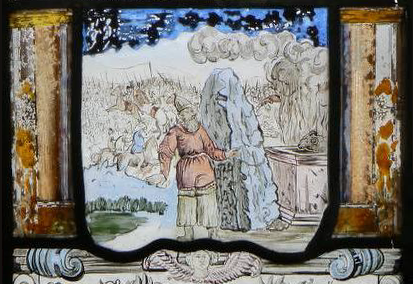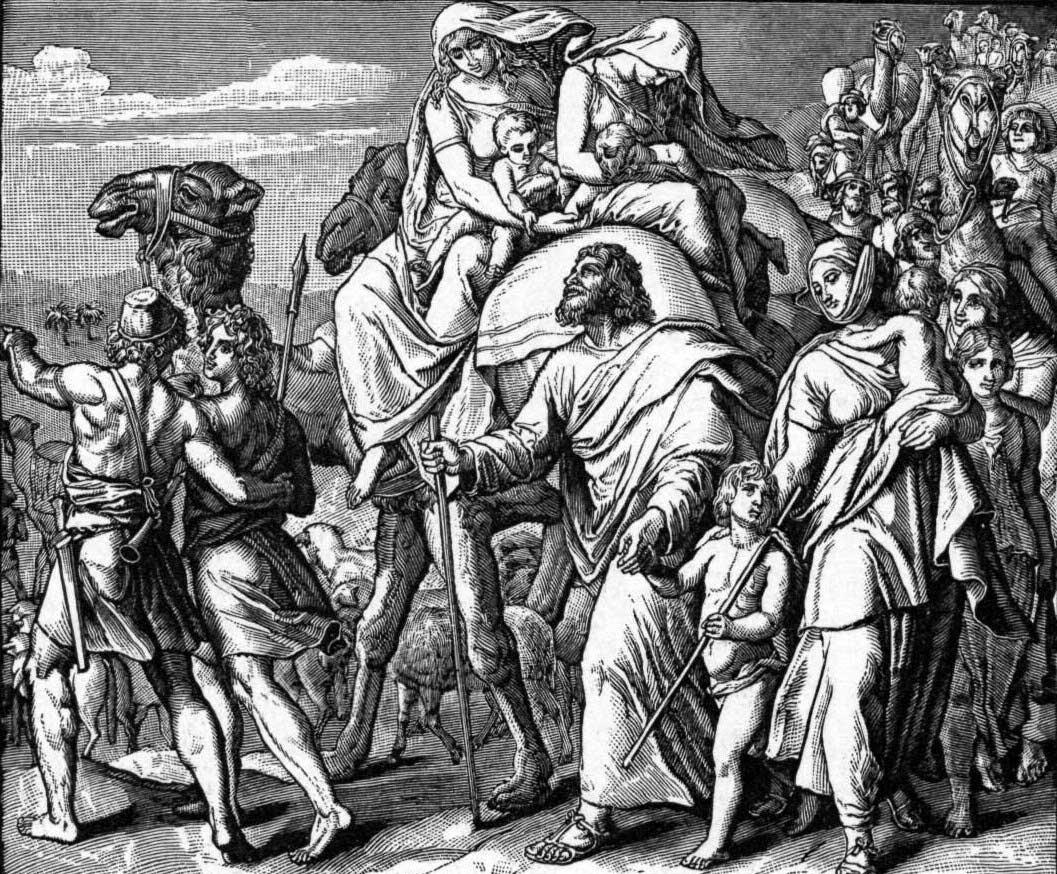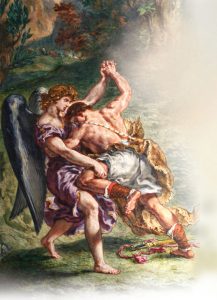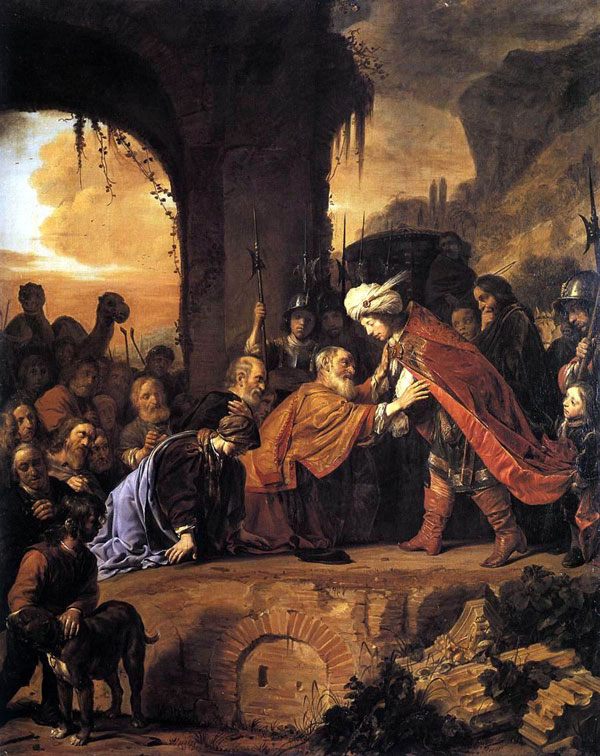

The ‘Ark of the Covenant’ was greatly revered by the Israelites but was now under the captivity of the Philistines. They carried it to their highest shrine and placed it there amidst loud beats of music. But the next morning, the idol of the shrine deity was found prostrated before of the Ark. After the statue was restored to its original position, it was again found prostrated the next morning and this time its head and hands were broken off. At the same time, the residents of the place where the Ark was kept, broke into boils and rashes all over their bodies. A few sensible people from them understood and attributed these sufferings to the forceful possession of the Ark, a highly revered possession of the Israelites.
As a result they sent the Ark to another place where again it was the same story. Residents of all those Philistine provinces which housed the Ark suffered the same anguishes. Finally having all their options exhausted, the Philistines decided to move the Ark to a faraway place. Accordingly, the ‘Ark of the Covenant’ was loaded onto a bullock cart and was set free on main road leading out of the province. The cart was now free to be dragged wherever the bullocks drew it. Stringent orders to refrain from stopping the cart were issued to all the Philistine provinces. But out of curiosity, the Philistine rulers did follow the cart, keeping a certain distance though.
Surprisingly the cart headed straight for Israel and stopped right at Beth-shemesh in Jerusalem, so says the story.
The Israelites working in the farms nearby, the first to spot the ‘Ark of the Covenant’ were delighted. Later, the news spread to all Israelites and became a cause for a grand celebration. The Ark was then kept secured at the city of Kiriath-Jearim until King David of Israel built a temple for it.
The sequence of events, especially the miraculous return of the ‘Ark of the Covenant’ changed the Israelite mindset to a great extent and most of them resolved to return to their original beliefs and to address their faith to their own God. Importantly, they were now fully aware that troubles beset them whenever they strayed from the divine path or turned their backs on God.
Of course, there were many other Israelites who, in spite of having pledged to repose their faith in the Israelite God, were still unwilling to abstain from practising polytheism prevalent in the region then.
It was under these circumstances that after Eli’s death Samuel assumed the leadership of the Israelites. Samuel desired to create unity and brotherhood among all the Jews and sought peace and security for them. He intended to abolish polytheism and lead all the Israelites on the path of monotheism as he hated double standards of following both the beliefs at one time. He earnestly felt that once we decide to repose faith in God and we are certain that He takes care of our well-being, where is the need to worship multiple Gods? Hence on assuming the Israelite leadership the very first task Samuel undertook, was to sermon the Israelites to renew their faith in monotheism and to rid them of undesirable customs-traditions-beliefs. For the purpose, Samuel toured various parts of Canaan and in fact combed the entire region.

He then gathered all the Israelites across the region of Canaan. He not only earnestly tried to explain but woke them up to the Israelite heritage and legacy. “We do have the Supreme God by our side, do we not? Why then do we need to pursue the worship of other deities?” he questioned the people in anguish. Importantly, the one point he hammered into them was, – whenever the Israelites strayed from the divine path and from God, calamities struck them.
Gradually, Samuel’s sermon created the desired effect and many of the Israelites were left moved by the time Samuel had finished. This resulted in the Israelites desisting from polytheism and the local customs-traditions-beliefs. Finally offering oblations they all offered prayers to the ‘One Supreme God’.
Just when Samuel was busy delivering his sermon, the Philistines came to know about the large Israelite congregation. Recognizing this to be a ready opportunity for their revenge, the Philistines gathered their forces and prepared for attack.
On hearing the news, the Israelites requested Samuel to pray to God for mercy and Samuel obliged.
The Philistine army was in sight it was hit by a storm and heavy rains. The Philistines just could not face these calamities. Turning this opportunity to their advantage the Israelites launched an all-out attack in which several Philistines were killed while those left behind were driven out of the land of Canaan.

The experience taught them so bitter a lesson that the Philistines that till the time Samuel led the Israelites, the Philistines did not so much as think on the lines of a provocation or confrontation with the Israelites.
But Samuel was now old but the question of who would succeed him remained unanswered. Just for the sake of making some provisional arrangement, Samuel appointed his two sons as ‘Judges’. But it is said that like Eli’s sons, Samuel’s sons too were incapable and worthless for the post.
The changing conditions underlined all the more, the dire need for a strongly central leadership. The leader was required to be completely faithful to God, to protect the Israelites from external aggressions, to hold them together and get them to follow the Israelite religious principles and tenets.
The elder and wise from among the Israelites met Samuel with a request that a stable central ruler be appointed for the Israelites. But considering instances of oppressive rulers in their neighbourhood, Samuel was not quite in favour of creating the post. He accordingly tried explaining it to the representative assemblage but exhausted by perpetual wars and adversities, they vehemently persisted with their demands for a ‘strong central leadership’.
Hence though unwilling, Samuel sought God’s word, the answer that they received, favoured the appointment of a ruler so the representative assemblage left contented.
Samuel was soon to meet the first king designate of the Israelites! (To be continued…)












